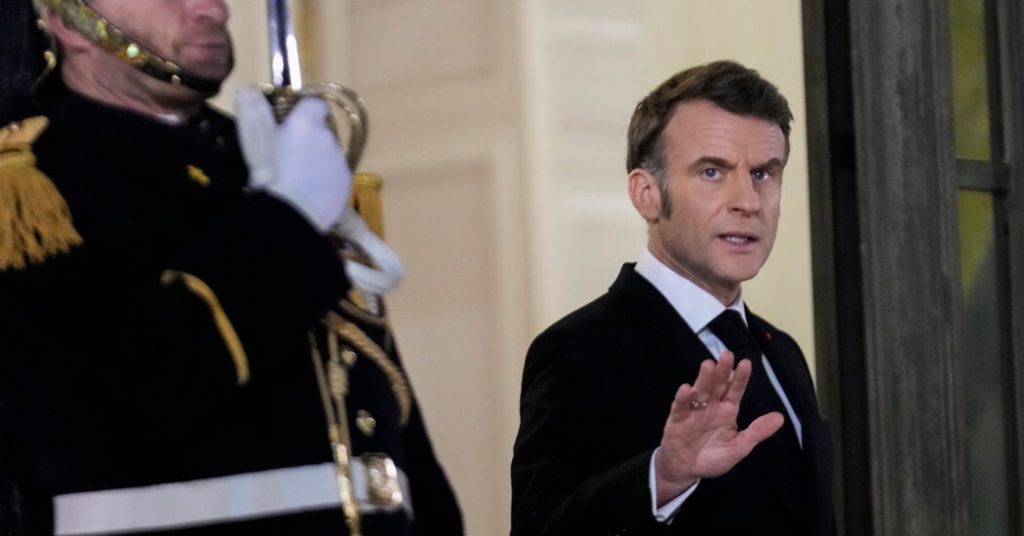President Emmanuel Macron stated on Wednesday that France is open to discussing extending the protection provided by its nuclear arsenal to its European allies. This comes as Europe faces increased Russian aggression and reduced support from the United States.
France and Britain are the only two European countries with their own nuclear weapons, with only France being a member of the European Union. Both Russia and the United States are also nuclear powers.
Mr. Macron emphasized the importance of France’s nuclear deterrent in maintaining peace and security in Europe since 1964. He mentioned opening a strategic debate on extending this protection to allies on the European continent.
Even before Russia’s invasion of Ukraine in 2020, President Macron had expressed support for a strategic dialogue with European partners regarding France’s nuclear deterrence. However, these ideas did not gain much traction at the time, as many allies depended on the nuclear capabilities of the United States.
Recent shifts in U.S. support and pressure on European allies to increase defense spending have prompted a reassessment of Europe’s security landscape, leading to renewed interest in discussions about France’s nuclear umbrella.
In a speech, Mr. Macron highlighted the challenges faced by Europe amid an uncertain American ally and an aggressive Russia. He stressed the need for Europe to be prepared for unforeseen circumstances and announced plans to convene a meeting of European army chiefs to discuss peacekeeping efforts in Ukraine.
He noted that the future of Europe should not be dictated by external powers and referenced calls for a debate on nuclear deterrence from Germany’s likely future leader, Friedrich Merz.
Mr. Merz recently suggested the need for German authorities to engage in discussions with French and British counterparts about extending their nuclear defense capabilities.
In a recent interview, Mr. Macron emphasized the importance of strategic dialogues with European allies who lack nuclear deterrents, as they can no longer rely on the U.S. for such protection. He mentioned potential joint deterrence drills but acknowledged that details about a French or French-British nuclear umbrella for Europe are still unclear.
While some in France oppose the idea, arguing that it compromises national sovereignty, Mr. Macron and his allies maintain that France will retain control over its nuclear weapons and any decisions regarding their use.
France’s Defense Minister, Sébastien Lecornu, reiterated that France’s nuclear deterrence is and will remain French. He highlighted the historical precedent set by past French presidents, including Charles de Gaulle, in emphasizing that the country’s vital interests extend beyond its borders.
Mr. Lecornu emphasized the need to address European partners’ questions about France’s deterrence capabilities, its implications for them, and its continuity in the future.

